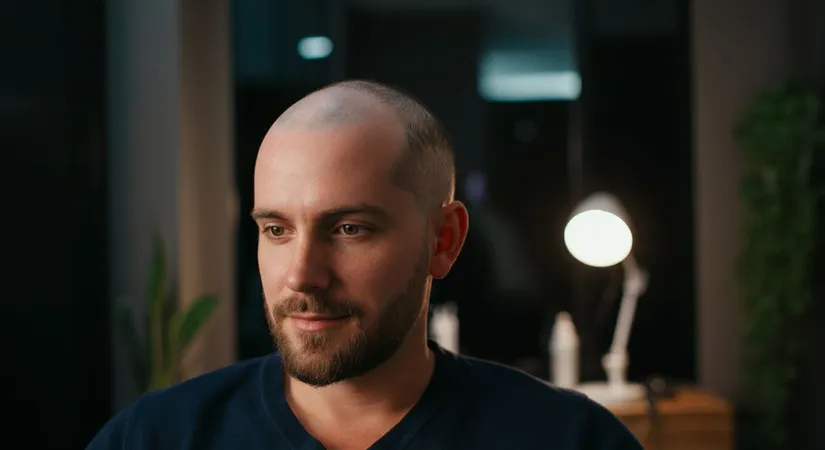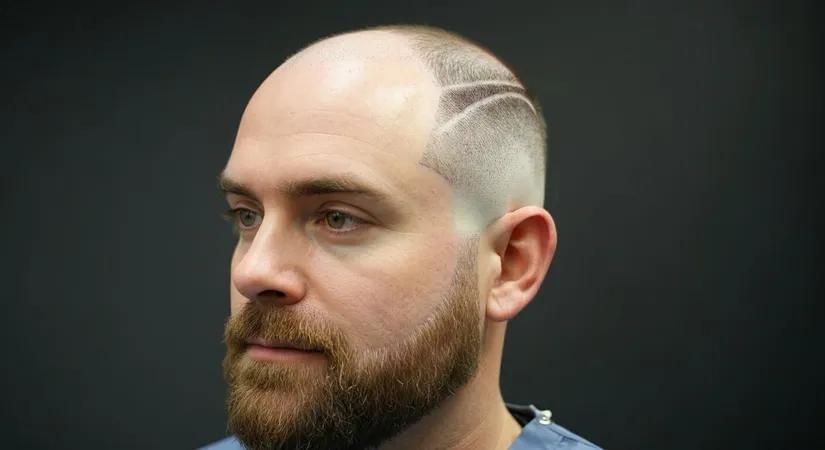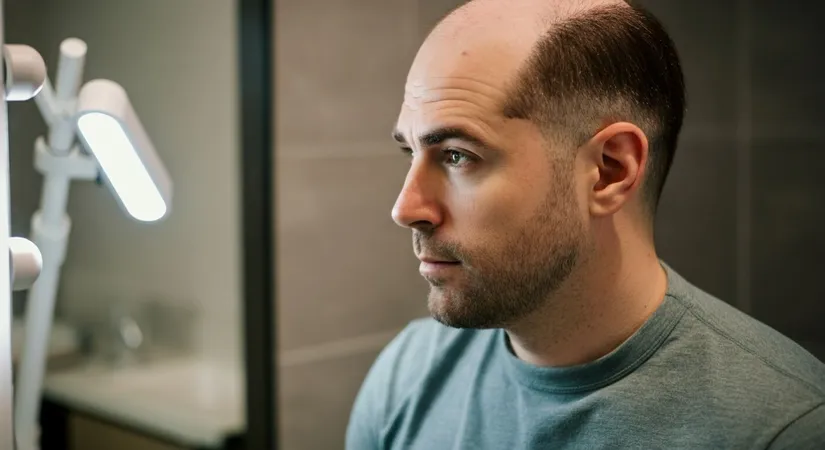How to Find the Best Hair Transplant Doctor for Your Needs
Explore our guide to choosing the best hair transplant doctor and uncover the secrets of successful hair restoration.
In the quest for restoring a full head of hair, finding the best hair transplant doctor is crucial. A skilled specialist can offer not only a change in appearance but also a boost in self-confidence. In this guide, we will explore essential aspects of choosing a hair transplant doctor, key qualities to look for, and the latest techniques in hair transplant surgery. Whether you are dealing with hair loss or simply seeking hair restoration, understanding the role of a skilled doctor is your first step towards successful treatment.
Understanding the Role of a Hair Transplant Doctor
Essential Skills and Techniques of a Hair Transplant Doctor
A hair transplant doctor is a specialist dedicated to restoring hair through advanced surgical techniques. This role requires a deep understanding of hair loss patterns and the ability to recommend suitable surgical procedures. Techniques such as Follicular Unit Extraction (FUE) and Direct Hair Implantation (DHI) are essential tools in the doctor's arsenal, ensuring results that look as natural as possible. Regular training in emerging technologies keeps the doctor at the forefront of hair transplant innovations, enhancing patient satisfaction.
Key Responsibilities of a Hair Transplant Doctor
- Assessing individual hair loss patterns and recommending tailored solutions.
- Performing surgical procedures with precision to ensure natural-looking results.
- Staying updated with the latest advancements in hair restoration techniques.
These responsibilities highlight the importance of choosing a skilled professional for hair transplant surgery. For those seeking expert care, it's crucial to discover the top hair transplant doctor near you.
Steps in Hair Transplant Surgery
- Initial consultation to evaluate hair loss and discuss expectations.
- Selection of the appropriate surgical technique based on individual needs.
- Post-surgery follow-up to ensure successful recovery and optimal results.
Each step is crucial in achieving the desired outcome, emphasizing the need for a qualified hair transplant doctor to guide the process effectively.

Key Qualities to Look for in a Hair Restoration Specialist
Evaluating the Expertise of a Hair Restoration Specialist
When selecting a hair restoration specialist, it's crucial to assess their expertise. Board certification is a strong indicator of their qualifications. For instance, a specialist certified by the American Board of Hair Restoration Surgery demonstrates adherence to high standards. Additionally, a comprehensive portfolio showcasing a variety of successful surgeries can provide insights into their experience and skill level. A specialist who has performed numerous procedures is likely to have refined their techniques, ensuring better outcomes for patients.
Artistic Vision and Communication Skills
- Ability to create natural hairlines that complement facial features.
- Transparent communication about realistic outcomes and procedural details.
- Understanding patient needs and setting clear expectations.
An artistic eye is essential for a hair restoration specialist, as it allows them to design hairlines that look natural and enhance the patient's appearance. Moreover, effective communication skills are vital. A specialist who can clearly explain the procedure, potential results, and any risks involved helps build trust and ensures that patients have realistic expectations.
Reputation and Patient Feedback
- Research online reviews and ratings from previous patients.
- Seek recommendations from trusted sources or medical professionals.
- Evaluate the specialist's reputation within the medical community.
Patient reviews and ratings are invaluable when choosing a hair restoration specialist. Positive feedback from previous patients can indicate a specialist's reliability and success rate. Additionally, recommendations from trusted sources or other medical professionals can provide further assurance of their competence. A strong reputation within the medical community often reflects a specialist's commitment to excellence and patient satisfaction.

Top Questions to Ask Before Choosing Your Surgeon
Evaluating the Surgeon’s Experience and Techniques
When selecting a hair transplant doctor, understanding their experience and techniques is crucial. Ask about their years of practice and the number of surgeries performed. For example, a surgeon with over a decade of experience and thousands of successful procedures is likely to have honed their skills significantly. Additionally, inquire about the specific techniques they use, such as the Safir FUE method, which is known for its precision and minimal scarring. This information helps gauge their proficiency and suitability for your needs.
Post-Surgery Care and Recovery Insights
- Comprehensive post-operative care plans to ensure smooth recovery.
- Availability of follow-up consultations to monitor progress.
- Guidance on managing potential side effects and complications.
Understanding the post-surgery care provided by the clinic is essential. A reputable hair transplant clinic will offer detailed recovery plans, including follow-up consultations to track healing progress. They should also provide guidance on managing any potential side effects, ensuring you are well-prepared for the recovery journey.
- Discuss the expected recovery timeline and any lifestyle adjustments needed.
- Inquire about the clinic's emergency protocols for unforeseen complications.
- Clarify the surgeon's availability for post-operative concerns or questions.
These discussions help set realistic expectations and prepare you for the recovery process. Knowing the surgeon's availability for post-operative concerns ensures you have support throughout your healing journey.

Latest Techniques in Hair Transplant Surgery You Should Know
Innovative Tools and Techniques in Hair Transplant Surgery
Hair transplant surgery has evolved significantly with the introduction of innovative tools and techniques. The Multi DHI technique, for instance, minimizes tissue trauma, leading to faster recovery times. This method involves using advanced tools like the Multi Implanter, which allows for precise hair follicle placement, enhancing overall hair density. These advancements enable hair restoration specialists to achieve more natural-looking results tailored to individual patient needs.
Benefits of Advanced Hair Transplant Techniques
- Reduced recovery time due to minimized tissue trauma.
- Improved hair density and natural appearance.
- Customization to meet patient-specific requirements.
Staying informed about these latest technologies ensures that patients receive effective and cutting-edge treatment options. By leveraging these advancements, hair transplant doctors can offer solutions that not only restore hair but also boost patient confidence.
- Initial assessment to determine the best technique for the patient.
- Utilization of advanced tools for precise follicle placement.
- Post-procedure care to ensure optimal results and recovery.
These steps highlight the importance of selecting a skilled hair transplant doctor who is well-versed in the latest techniques. By doing so, patients can achieve the best possible outcomes in their hair restoration journey.
Innovative Hair Transplant Techniques for Natural Results
Excellence in Hair Transplant Surgery with Proven Techniques
Frequently Asked Questions
What are the key qualities to look for in a hair transplant doctor?
How do advanced hair transplant techniques benefit patients?
What should I ask a hair transplant doctor before undergoing surgery?
How can I assess the reputation of a hair restoration specialist?
What are the steps involved in hair transplant surgery?
Discover the Path to Healthy Beauty with estethica's Expert Care!
📞 Call Now for Your Free Consultation!